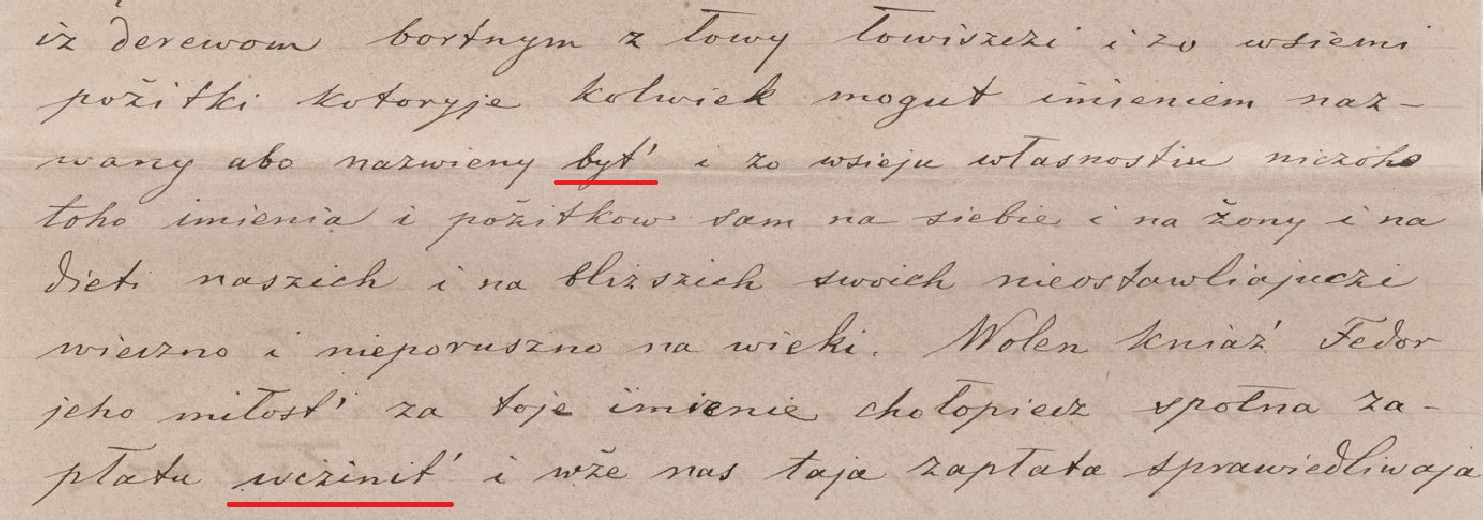
Infinitive
To form infinitive version of the stem add the suffix:
-ť -ть
If you can't use diacritics you can use equivalent:
-ti -ти See the resolution table for infinitiveExamples
ima~, има~ (have)
imať, imati, имать, имати (to have)
говори~, govori~ (speak)
govoriť, govoriti, говорить, говорити (to speak)
-uje infinitives
If a verb ends with -uje the infinitive is made with -ovať / -ovati.For example need~ → potrebuje~, потребује~; to need → potrebovať, потребовать
Irregular Infinitives
There are some infinitives which are different than their stems:
byť быть (to be)
rec рец (to say)
jesti єсти (to eat)
gret, грет (to heat)
najti, найти (to find)
rasti, расти (to grow)
smiať se, смять се (to laugh)
zabyti, забыти (to forget)
prinesti принести (to bring)
pribyť прибыть (to arrive)
pomoci, помоци (to help)
vedieť ведьеть (to be aware)
běžet, бьежет (to run)
Also all infinitives with go stem:
isti исти (to go)prejsť, прейсть (to go over)
prijti прийти (to come)
oditi, одити (to go away)
sojti, сойти (to go off)
There are also several irregular infinitives denoted in the dictionary with with ∞ mark. To create infinitive replace ∞ with ~ť or ~ti, to create past replace ∞ with ~l. They are different than their conjugation stems, for example:
dodať додать (to add)
začať зачать (to begin)
kupiť купить (to buy)
dať дать (to give)
držať држать (to hold)
žiť, жить (to live)
prať прать (to launder)
prijať приять (to receive)
vziať, взять (to take)
jehať ехать (to ride)
spať спать (to sleep)
piť, пить (to drink)
stať стать (to stand)
pisať писать (to write)
letať, летать (to fly)
myť, мыть (to wash)
biť, бить (to beat)
zmeniť, зменить (to change)
kovať, ковать (to forge)
vstať, встать (to get up)
zabiť, забить, ubiť, убить (to kill)
lizať, лизать (to lick)
The infinitive stem must be also used for past participle.
Naslednja strana: Gender

Infinitive with soft ť in an old ruthenian letter from year 1533.